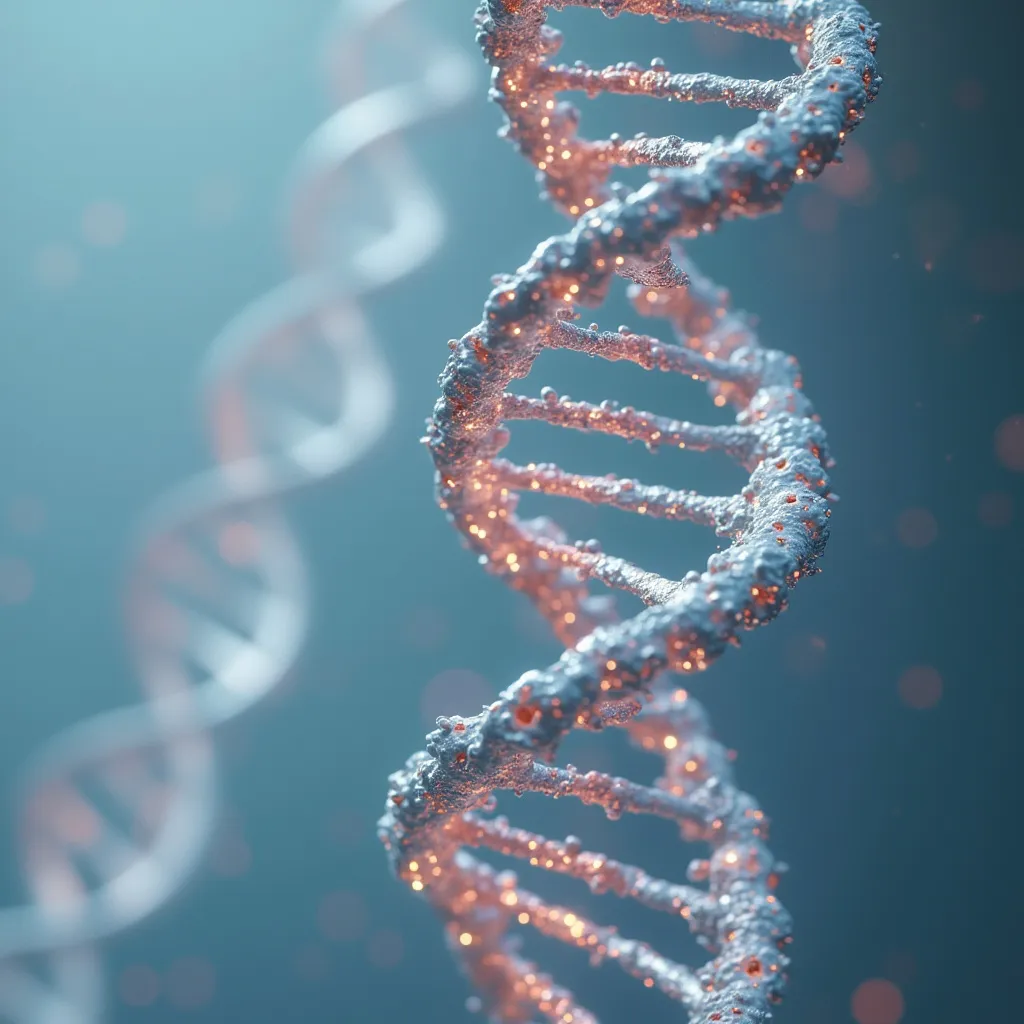Understand the Foundations of Genetics
Discover the essential principles of genetics and explore how understanding these principles can illuminate various aspects of human health and biology, opening pathways to advanced research and personalized medicine.
What is Genetics
Genetics is the study of genes and heredity, focusing on how traits and characteristics are transmitted from parents to offspring through DNA. At the core of genetics is the DNA molecule, which encodes the instructions for the development and functioning of living organisms. Genes, composed of DNA sequences, are the basic units of heredity and play a crucial role in determining the physical and biochemical traits of an organism.
The Role of DNA in Genetics
DNA, or deoxyribonucleic acid, is a double-helix structured molecule composed of nucleotides. These nucleotides contain a sugar, phosphate group, and one of four nitrogenous bases: adenine, thymine, cytosine, and guanine. The sequence of these bases provides the genetic blueprint for an organism, influencing everything from physical appearance to metabolic pathways. Each person's DNA is unique, with the exception of identical twins, making it a significant tool for understanding individual differences and diseases.
Genetic Variation and Mutation
Genetic variation is a cornerstone of diversity in biology, arising from mutations, genetic recombination during sexual reproduction, and other processes. Mutations are changes in DNA sequences that can be benign, beneficial, or harmful. While some mutations lead to genetic disorders, others can contribute to adaptive evolution. Understanding the mechanisms and consequences of these genetic variations is essential for developing gene-based therapies and treatments.
Gene Expression and Regulation
Gene expression involves the process by which information from a gene is used to synthesize a functional gene product, typically a protein. This process is tightly regulated at various stages, including transcription, RNA processing, and translation. Understanding gene regulation is critical for comprehending how cells function and differentiate and how malfunctions in these processes can lead to diseases, including cancer and genetic disorders.
Practical Applications of Genetics
Research in genetics has facilitated various applications across multiple fields. In medicine, genetics plays a role in diagnosing genetic disorders, crafting personalized treatment plans, and understanding the genetic basis of complex diseases. Services like ChatDNA allow users to analyze their genetic information, providing insights into health and wellness by repurposing data acquired from popular DNA testing services.
In agriculture, genetic engineering has been used to create crops that are resistant to pests, diseases, and environmental conditions. These advancements in genetics can potentially address food security and sustainability challenges by improving crop yield and nutritional content.
Epigenetics A New Frontier
Epigenetics is a field that examines changes in gene expression that do not involve alterations to the DNA sequence itself. These changes can be triggered by environmental factors, lifestyle, and experiences, affecting how genes are expressed and inherited. Epigenetic modifications can have lasting effects on an organism's health and development and may influence the risk of diseases.
Some epigenetic changes are reversible, and understanding these modifications opens new avenues for therapeutic interventions. Research in epigenetics is expanding our knowledge of complex biological processes and holds promise for advancing personalized medicine by tailoring interventions based on an individual's epigenetic profile.
Conclusion
The study of genetics continues to unravel the complexities of life, offering insights into the fundamental mechanisms that govern inheritance and variation. From the molecular intricacies of DNA to the broader applications in medicine and agriculture, genetics holds a key to understanding and improving the biological world. As research progresses, the integration of genetics with emerging fields like epigenetics will likely continue to revolutionize how we approach health, disease, and environmental challenges.
What is ChatDNA?
ChatDNA can analyze your DNA to answer any question. When you ask a question it will provide clear explanations and meaningful insights about who you are at a genetic level.
You can import existing DNA results from all major services like 23andMe and AncestryDNA or purchase a new DNA test kit through ChatDNA.
ChatDNA is especially valuable for anyone interested in:
- Understanding how their genes influence health and wellness
- Learning about their unique genetic traits
- Discovering personalized insights about their biological characteristics
- Getting clear, conversational answers to their DNA-related questions
Ready to get answers about your DNA? Visit ChatDNA.co to get started.
